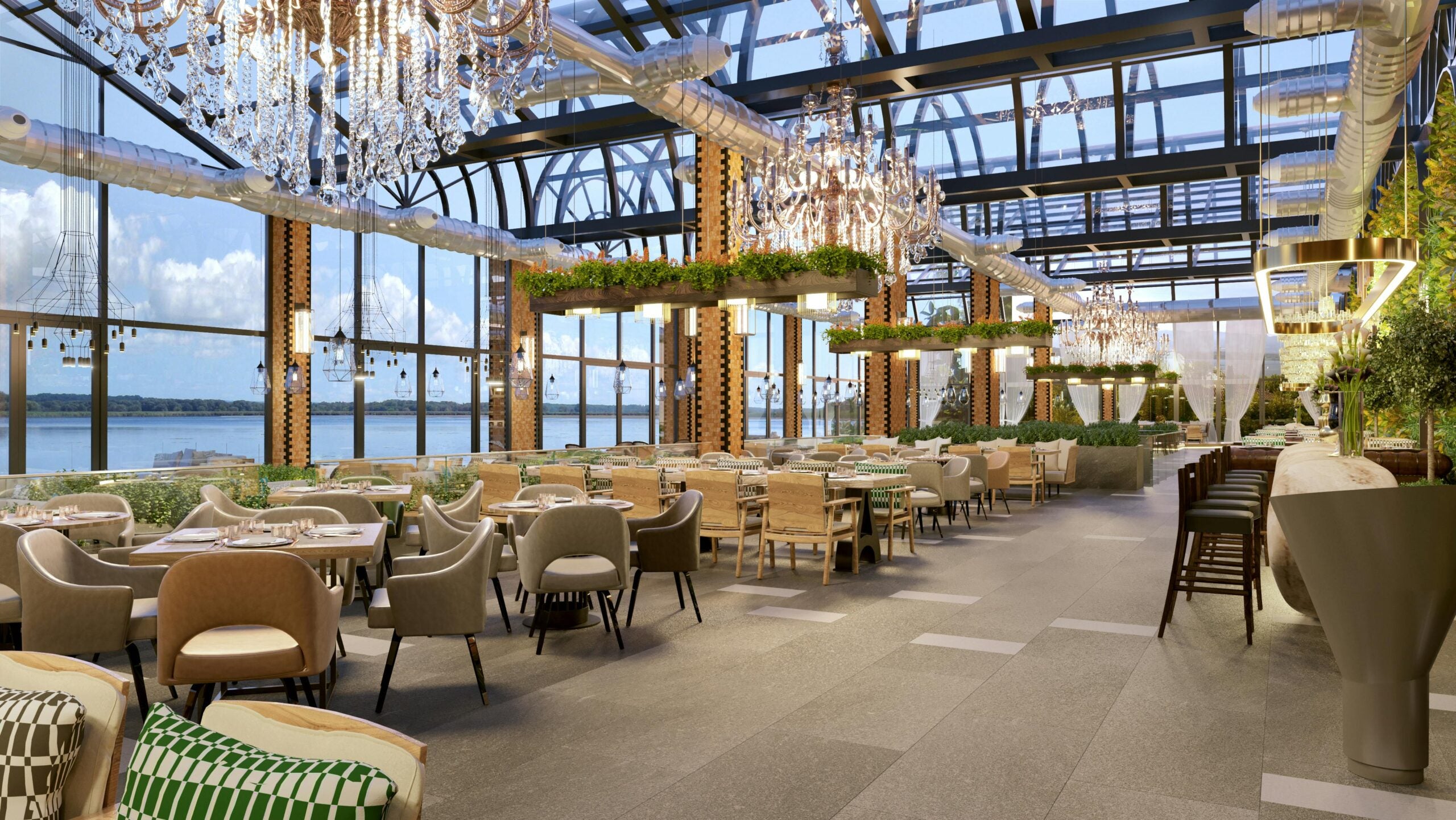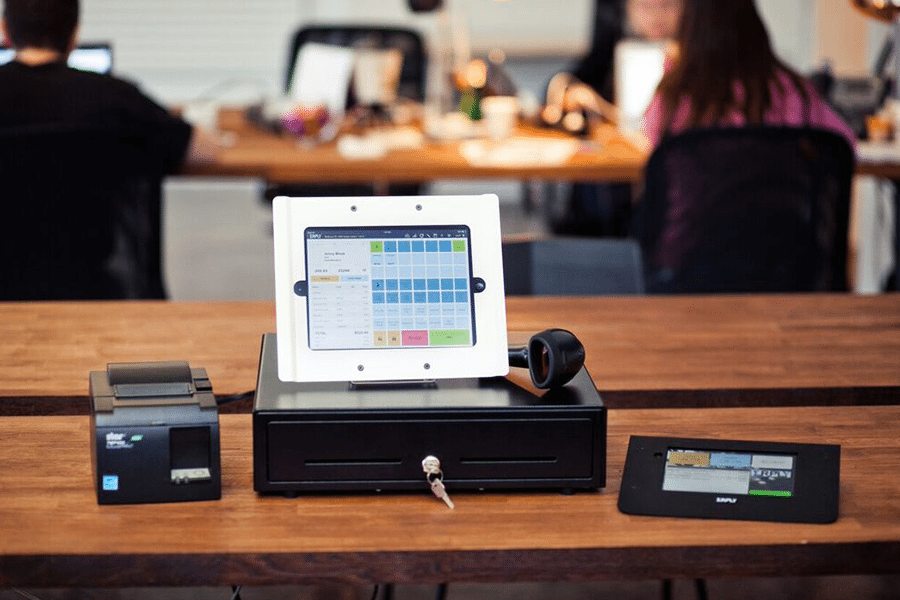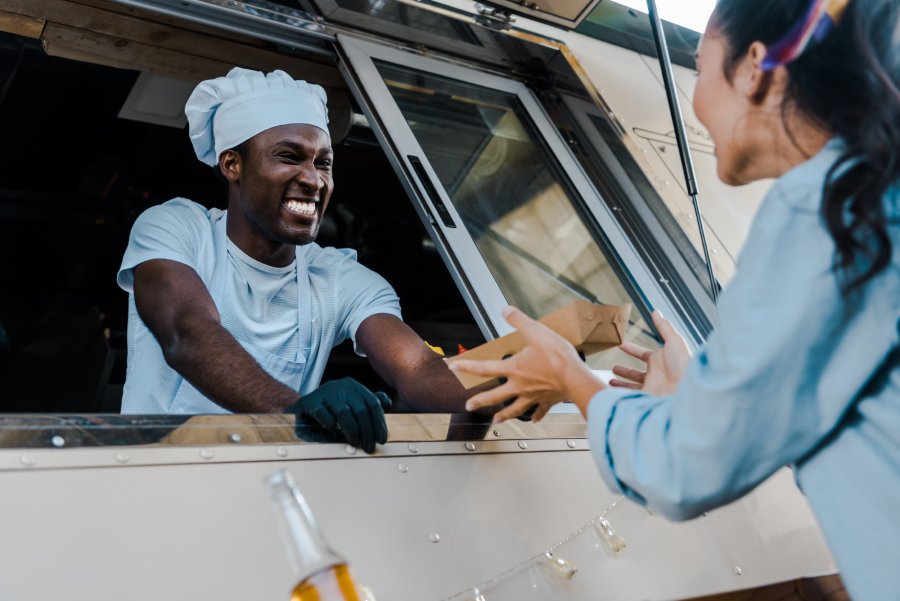Whether you’re planning on opening your first restaurant or just scaling up your home bakery, restaurant insurance is going to be a crucial part of a successful business plan. That’s because if you find yourself facing a claim of negligence, like food poisoning, an employee suffering burns and being unable to work, or a lightning strike that ruins your POS system, restaurant insurance can help keep your business running.
Restaurant insurance is a combination of policies that protect your assets against a claim and can help your employees if they get injured or replace your property if it is damaged. The most important policies to consider for your restaurant are general liability and workers’ compensation.
How Much Does Restaurant Insurance Cost?
When looking to purchase your insurance, obviously the cost is an important consideration. Restaurant insurance costs will fluctuate based on several factors. However, for this article, we obtained multiple quotes from different providers. All of them were for a small restaurant with four or fewer employees and a yearly revenue of around $300,000.
| Type of Coverage | Coverage Amount | Estimated Average Annual Premium |
|---|---|---|
| General Liability | $1 million per occurrence and $2 million aggregate | $800-$2,000 |
| Business Owner’s Policy (BOP) | $1 million per occurrence, $2 million aggregate, and $40,000 commercial property with $1,000 deductible | $2,561-$7,520 |
| BOP with Liquor Liability | $1 million per occurrence, $2 million aggregate, and $40,000 commercial property with $1,000 deductible | $5,000-$6,800 |
| Workers’ Compensation | $100,000 per injury, $100,000 per illness, $500,000 policy limit | $2,300-$3,500 |
When determining the cost of a policy, providers will draw on their own internal data from years of insuring similar businesses. They also will pay attention to certain points of data about your business including the following:
- Type of business: A carry-out restaurant will have less risk than a 24-hour sit-in diner or a distillery with a kitchen. In each instance, the risk varies and increases, thus causing the cost of insurance to go up.
- Hours of operation: The time of day your business is open and the specific day of the week indicate the level of risk exposure a provider can face. For example, a restaurant that serves dinner until 7 p.m. vs a bar open until 2 a.m. will have different insurance needs and premiums.
- Number of employees: More employees equals a greater chance of an incident happening.
- Revenue: Revenue is indicative of how many customers are entering your establishment. It can also bear directly on lost business income coverage.
- Claims history: If you’ve had a claim in the past three to five years, this will be factored into your premium and likely means you will pay a higher rate. Similarly, the insurance company will factor if your business has had a health code violation into their premium rating.
- Experience: How many years of experience do you have in this industry? How many years has your business been open? Experience leads to learning and, hopefully, that means handling food right, knowing how to handle a potentially intoxicated customer correctly, and, in general, managing your business in a way that there is a mitigation of risk. So, your experience will matter for carriers.
- Equipment maintenance: How frequently do you have your equipment professionally cleaned? Or do you pay an outside service to clean your hoods and fans? Be prepared to answer questions along these lines.
- Value of property: What is the value of your business personal property—your kitchen equipment, dining furniture, POS system, and any other miscellaneous items you own for the restaurant?
- Cooking systems: This is an important but often overlooked one. Do you fry food? Cook pizza in an open wood-burning oven? Host outdoor grills? All of these create different types of risk an insurance company needs to consider.
All of that to say, it doesn’t mean you can’t find cheap restaurant insurance. Don’t be afraid to get more than one quote. You can also work with an insurance company that will sell insurance directly to the customer. One type of company like that is Next Insurance. By working directly with the customer, insurance companies can offer a lower premium because there is no upcharge for a broker or agent commission.
What Does Restaurant Insurance Cover for Food and Beverage Businesses?
Restaurant insurance isn’t one specific type of coverage. Small business insurance just doesn’t work that way. It is several policies that cover different types of loss and, when combined, form a complete level of protection for your restaurant. What follows is a list of the coverages a restaurant should consider and a brief explanation of what they cover.
| Coverage | Quick Overview |
|---|---|
| General liability | Third-party claims of property damage and bodily injury |
| Hired & Non-owned Auto Liability | Vehicles used for your business but now owned by your business |
| Liquor liability | Similar to general liability but the claims arise from intoxication |
| Commercial Property | First-party property at a specific location |
| Workers’ Compensation | Injuries, illness, and death directly related to work |
| Food Spoilage | First-party coverage for spoiled food |
| Food Liability | Losses that come from improperly stored food |
| Inland Marine Insurance | First-party property protection for equipment not at a specific location |
| Commercial Auto Insurance | Third- and first-party coverage for a vehicle or food truck |
Restaurant Insurance Case Study
Yes, restaurant insurance is a business expense. And yes, you really do need it. To better help you understand how it works and why it matters, consider an important real-life claim from recent history.
A young girl was burned by her chicken nugget in 20191. The incident went to court, and the family of the girl won and was awarded $800,000. The burns she received were second-degree burns. Most restaurants do not have over $800,000 lying around. And remember: this was after paying the lawyers who defended the restaurant.
Restaurant insurance policies will investigate the claim and provide a defense in court, if necessary. And settlements can be paid out of a policy—up to the limits, if necessary.
What Types of Food Businesses Need It?
- Restaurants: If you own a restaurant, whether it is a sit-down, fast-food concept, or something in between, you should consider most of the coverages. General liability, commercial property, and workers’ comp (if you have any employees) all stand out as the most important. And of course, consider liquor liability if you serve alcohol.
- Mobile food cart: Some restaurants operate a mobile food cart, and for others, the entire business is a food cart. Regardless, you’ll need inland marine insurance to cover the cart, and general liability for the business. If you’ve got multiple carts or employees, then you will want workers’ compensation.
- Food truck: If you operate a food truck, you’ll need commercial auto insurance. Some providers will insure attached equipment under the auto policy but, if not, then you will want inland marine for the kitchen equipment. And of course, you’ll need general liability for the premises and workers’ comp for any employees.
- Brewery & winery: For business owners of a brewery or winery, you will want to make sure your property is insured with a commercial property policy and the premise and customers are protected through general liability. The same goes for taking care of your employees with workers’ compensation. For this one, you will definitely need liquor liability too.
- Home baker: A lot of food and beverage businesses start out in the home. Perhaps you are operating as a baker. In that situation, you may not need any property coverage. However, most homeowners won’t have liability and certainly not product liability for food poisoning. So, make sure you’ve got a general liability policy.
- Catering company: If you operate a catering company, you probably rent a kitchen space. In that situation, you’ll want general liability and workers’ comp for your employees. If your catering company serves alcohol, then liquor liability will be critical to success.
Frequently Asked Questions
Last Bite
You work long days. Prep starts an hour before the front doors open, and after the last bite has been taken, there are still hours of cleaning to go. Restaurant insurance can’t help you with any of that, but it can protect all of the blood, sweat, and tears you’ve put into your restaurant by helping pay for damaged items or handle claims filed against your business. In some cases, it will spare you from costly fines or penalties if you should be insured but aren’t.
Getting insurance is easy with many providers offering quotes online in just 10 minutes or less. Find the right restaurant insurance coverage today so that you can relax a little bit during those moments when the business is closed.
- https://www.insurancejournal.com/news/southeast/2023/07/21/731624.htm ↩︎



